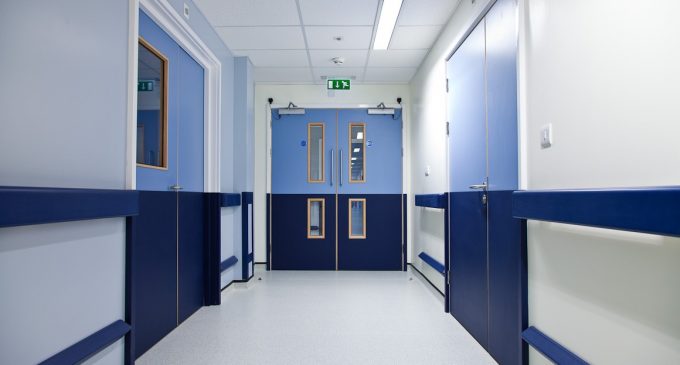Modular Quality Comes Of Age

Matthew Goff, director of UK operations at Actavo | Building Solutions, looks at the question of quality in modular construction – a technology which is now a mainstream solution for many private and public developments.
The growing acceptance of offsite building methods continues apace, and this can be attributed to government bodies’ recognition of modular’s multiple benefits.
Examples of this over recent months include Actavo | Building Solutions’ inclusion on the £750 million NHS modular framework and on Hampshire County Council’s Southern Modular Building framework.
Modular construction has been identified as the preferred method of procuring works that are delivered quickly, cost-effectively, on time and on budget. As a relatively new way of working, offsite construction has come of age. It is now accepted that it can deliver higher standards in every dimension: quality control, environmental performance, certification and insurance recognition.
A key advantage that modular building has over bricks and mortar is the degree of control afforded by the manufacturing process. Compare this to the situation on a traditionally-built development, where consistent levels of control over every element of the build programme are difficult to achieve.
The production line techniques employed in modular construction enable quality control management systems to be applied and adhered to, because production is taking place in a controlled environment.
Actavo, for example, is accredited to ISO 9001:2008, which requires a robust quality management system to provide a structured framework for managing processes, resources and business activities.
Since (April) 2016, it has been a government requirement for all public-sector building projects to be compliant with BIM (building information modelling). Integrated into modular construction, this assists with clash detection, improves manufacturing and procurement accuracy and provides clients with 3D designs, visualisations and more accurate maintenance data.
BIM Level 2 – which Actavo complies with – complements lean manufacturing practices, resulting in high-quality buildings being designed, engineered and assembled offsite, resulting in minimal site works. Potential issues are detected and resolved prior to start of manufacture, rather than having to be rectified in situ, which is a key benefit of pre-construction clash detection and the design, build and production interface.
Modular techniques also lend themselves to high levels of sustainability performance, such as BREEAM, Passivhaus and AECB.
Every stage of the production line in modular construction is subject to stringent quality checks. Final inspection prior to despatch from the factory generates a quality inspection report and affirms that all additional components – such as the relevant fixing bolts and flashings – accompany each unit. Onsite, foundation assemblies are checked for accuracy and, once installed, units are again checked for quality.
Assembling onsite is then focused on a simple but tightly-controlled programme. To mimic this in traditional building environment would entail continuous surveillance.
Offsite construction works towards a ‘zero defects’ conclusion and enables defined stages of inspection. Supply chain partners and sub-contractors are enveloped in the quality management system, and so are subject to thorough checks to ensure that the finished product surpasses the drawing board vision.
One final aspect of modular construction that should be considered is the overall aesthetic of the completed building. When talking about production line techniques, it is all too easy to conjure up a picture of uniform buildings lacking visual appeal. The opposite is, in fact, true. Bespoke modular buildings can be as individual as their bricks and mortar ‘cousins’ and complement their surroundings just as elegantly.
The many facets to modular building’s edge on old-fashioned methods – e.g. sustainability, design flexibility, speed of build, minimal onsite disruption, time and cost certainty, cost-effectiveness – are all dwarfed by what clients really value, namely quality.
The repeatability of delivering high-quality buildings, time after time, means modular is set to become the norm.
Such is Actavo’s confidence in – and, indeed, current success with – modular construction, that in the coming weeks, the company will be announcing a significant expansion of its UK operations to serve the construction, educational, healthcare, rail, defence, accommodation and commercial sectors.







